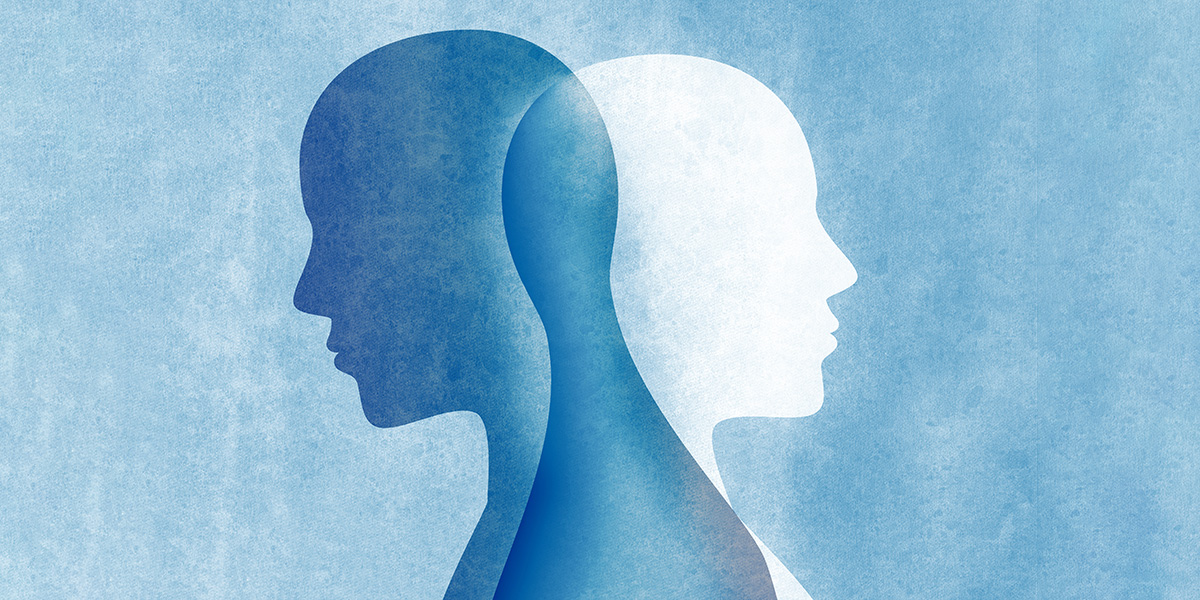As we learn more and more about substance use disorders, you may come across unfamiliar phrases, such as Dual Diagnosis. According to the National Alliance on Mental Illness (NAMI), co-occurring disorders or dual diagnosis affect 17 million adults in the United States. What this means is, 17 million adults are diagnosed with mental illness and substance use disorder.
Either disorder can occur first, and commonly affects persons with mental illness, such as depression or anxiety, as a way to cope with the distressing symptoms of the mental illness.
Although it may sound unsettling, receiving a dual diagnosis is not uncommon and the actual numbers may actually be higher, considering many do not self-report because of stigma surrounding addiction or other personal reasons.
What are the Most Common Dual Diagnoses?
The cycle of mental illness and substance misuse can increase the risk of alcohol or drug addiction. While there are a number of mental disorders, some of the most common include:
- Eating disorders
- Generalized anxiety disorder
- Post-traumatic stress disorder
- Bipolar disorder
- Attention deficit hyperactivity disorder
- Schizophrenia
- Personality and mood disorders
Eating Disorders
Eating disorders anemia nervosa, binge-eating, and bulimia often include body dysmorphic disorder. People with these disorders experience a preoccupation with the weight, shape of the body, and food. Though not always, people with an eating disorder may rely on stimulants or diet aids to stave off appetite.
Generalized Anxiety Disorder
Anxiety symptoms can include feelings of restlessness, trouble sleeping, frequent anxiety and panic attacks, and social anxiety. Prescription medication such as Xanax can help, but people may misuse and become dependent. Some may also rely on alcohol to feel more sociable.
Post-Traumatic Stress Disorder
PTSD can occur after a traumatizing event, such as sexual assault, a natural disaster, or combat. If left unresolved, some people resort to drugs and/or alcohol for temporary relief of the symptoms when actually these substances can worsen the condition.
Bipolar Disorder
With bipolar disorder, individuals experience unusual high and lows with mood and energy. This can make it difficult to manage everyday tasks. Some people self-medicate with drugs or alcohol to help manage the symptoms. However, this can lead to an increase in episodes and addiction.
Attention Deficit Hyperactivity Disorder
ADHD is a neurodevelopmental disordered commonly diagnosed in childhood but can be first diagnosed in adulthood. People with ADHD can have trouble controlling impulses and paying attention. It can affect their career and relationships. Prescribed stimulants help this condition but are also commonly abused. Some rely on other drugs and alcohol to help suppress the symptoms of ADHD.
Schizophrenia
Schizophrenia can affect how a person thinks, feels, and behaves. It is a serious disorder and can include hallucinations, delusions, and disordered thinking. It can be so severe it is disabling. Because it is difficult to tell the difference between reality and illusion, many people with schizophrenia turn to alcohol or drugs to numb the symptoms.
Other Personality and Mood Disorders
Personality and mood disorders may appear similar but differ from each other. Personality disorders can affect mood but center on relationships with others, while a mood disorder centers on a person’s mood. To further complicate things, the 2 can co-occur. Extreme mood swings, irritability, unstable relationships, and low self-esteem can make some individuals rely on drugs and/or alcohol to self-medicate.
Addiction and Dual Diagnosis Treatment
With treatment, we can manage dual diagnosis. Therapy and substance abuse specialists can work together and establish a treatment plan that addresses mental illness and addiction.
Pura Vida Recovery Services provides complete dual diagnosis treatment for men and women. Our evidence-based outpatient recovery program helps people reclaim freedom and live a life of joy.
We understand cost prevents many people from getting the treatment they need and we offer financial plans to make treatment an affordable option and scholarships for qualified individuals. We also accept many insurance plans and our team can help you verify coverage for treatment.
If you or a loved one struggles with mental illness and drug and/or alcohol dependency, get in touch with Pura Vida and request a confidential assessment to learn if our outpatient program is the best choice for you.





